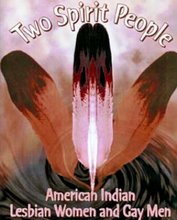When I took the eye exam for my driver's license as a teenager, I first tried without my glasses.
"Nice rows of blurry black lines, right?" I joked.
I slipped on my glasses. And, presto, crisp, distinct letters appeared before my eyes. The letters, of course, had always been there; I just couldn't recognize them.
When the California Supreme Court ruled May 15 that gay couples have the same constitutional right to marry as heterosexuals, it essentially said that one job of courts is to adjust the vision of people who simply haven't been able to see the injustice right in front of them.
Chief Justice Ronald George, a Republican appointee who wrote the 121-page majority opinion, said the nation's evolution in views and policies toward racial minorities and women teaches "that even the most familiar and generally accepted of social practices and traditions often mask an unfairness and inequality that frequently is not recognized or appreciated by those not directly harmed by those practices or traditions."
The 4-3 ruling -- the same split as in 1948 when California's top court became the first to strike down a ban on marriage between people of different races -- means gay couples can marry in California in about 30 days.
California follows Massachusetts, where more than 10,000 gay couples have married since 2004. But, unlike in Massachusetts, gay couples from any state will be able to marry there.
The breakthrough in the trendsetting Golden State -- home to one of every 8 Americans -- is gigantic.
As San Francisco Mayor Gavin Newsom, who triggered the court case in 2003 by allowing his city to issue licenses to gay couples, joyfully put it after the ruling, "As California goes, so goes the nation!"
The landmark ruling by the nation's most influential state court was immediately embraced by two California heavyweights: Republican Gov. Arnold Schwarzenegger and House Speaker Nancy Pelosi, a Democrat with the power to block any federal marriage amendment.
All is not sunny in California, though. Voters will likely have to decide on a state amendment aimed at once again restricting marriage to opposite-sex couples.
But Schwarzenegger and Pelosi will help protect this advance, which Chief Justice George noted flows from recognition that the right to marry the person of one's choice is a "basic civil right (guaranteed) to all Californians."
So, his court isn't creating a new right. It's just saying the state mustn't block gay couples from exercising the right to marry -- just as it mustn't block interracial couples: "An individual's sexual orientation -- like a person's race or gender -- does not constitute a legitimate basis upon which to deny or withhold legal rights."
Read more:
Subscribe to:
Post Comments (Atom)
















No comments:
Post a Comment